The Alabama museum grappling with the 'Gulf of America'
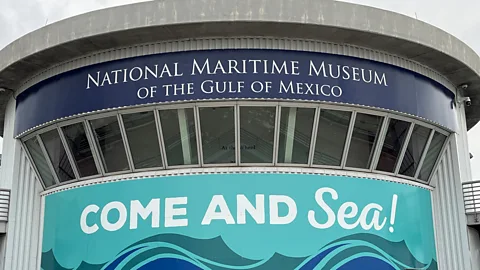 National Maritime Museum of the Gulf of Mexico
National Maritime Museum of the Gulf of MexicoThe world's only museum dedicated to the history and culture of the Gulf of Mexico may be in hot water following Trump's decision to change the name of the planet's largest gulf.
Last year Karen Poth decided it was time to rename the museum she runs in Mobile, Alabama, to better reflect its unique status.
To do so, she first had to line up support from elected officials and her board of directors before raising money for the project. Next, she needed to update the museum's website, logo and printed materials. Then in April 2024, she finally unveiled the new name in letters stretching 50ft across the eight-storey building: the National Maritime Museum of the Gulf of Mexico, the only museum in the world dedicated to the history, folklore and culture of the largest gulf on Earth.
So, imagine her response when US President Donald Trump recently announced that he planned to rename the body of water to the south of the US from the Gulf of Mexico to the Gulf of America. "My personality is to laugh," Poth said. "Or else you cry."
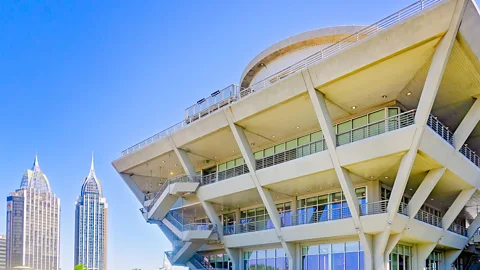 Alamy
AlamyThe name change, which was signed into law on 20 January and is part of a broader Trump effort to "honour American greatness", has created an international firestorm. After Google recently announced that it would follow Trump's executive order and also change the Gulf's name on Google Maps in the US, Mexican President Claudia Sheinbaum argued that Trump alone cannot legally do that.
Poth says she's not taking sides, but admits she's overwhelmed at the thought of what would happen if the museum had to change every reference to the Gulf of America. "It would be a complete redo of the entire museum. If you think about it, every audio, every video, every digital, every sign… that will be very, very expensive."
Rediscovering America
Rediscovering America is a BBC Travel series that tells the inspiring stories of forgotten, overlooked or misunderstood aspects of the US, flipping the script on familiar history, cultures and communities.
Since the museum is owned by the city of Mobile, Poth said she will ultimately follow city officials' leads. "If I need to change the name of the museum, we'll be up there changing the signage on the top of the building." The museum still carries debt from its opening a decade ago, and Poth estimates that changing the museum's name in 2024 cost nearly $100,000.
But as visitors to the museum learn, the Gulf has actually had many names throughout its multi-cultural history. The name Gulf of Mexico, for example, first appeared on Spanish maps in the mid-1500s as a way of honouring the Mexica people who founded the Aztec empire. Yet, the 218,000-sq-mile oceanic basin – which borders five US states and a longer stretch of shoreline along the eastern coast of Mexico, along with the north-west coast of Cuba – has had other names too.
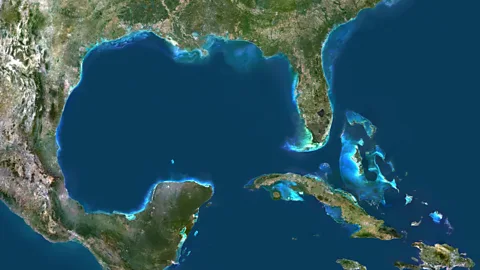 Alamy
AlamyAccording to John Sledge, the museum's maritime historian in residence, when the Spanish first reached the Gulf in 1513, they thought they had found a route to Asia and initially called it the Chinese Sea (a name unlikely to appeal to Trump, Sledge noted). Other early explorers called it the Gulf of Cortés or the Gulf of New Spain.
"It was really a Spanish sea throughout the 1500s and the 1600s," Sledge said. The Spanish were followed by the French, who founded Mobile and New Orleans in the early 1700s. The British gained control of the eastern edge of the region in the 1760s, before the United States finally seized the area in the 1810s.
The massive ship-shaped museum, which is celebrating its 10th anniversary in 2025, is set on a commanding waterfront location in downtown Mobile's Cooper Riverside Park, with floor-to-ceiling windows overlooking Mobile's port and bay, which feeds directly into the Gulf. Interactive displays highlight the area's multi-layered history, as well as its global influence. Visitors learn how the first European settlement in the US wasn't in St Augustine, Florida, as is commonly thought, but some 450 miles west on the Gulf in Pensacola. Exhibits also show how the Gulf's waters have become one of the world's most productive fisheries and one of the US's largest oil-producing regions. In addition, the Gulf Stream, which originates here, influences transatlantic shipping routes and moderates the weather in Western Europe by bringing warm tropical waters north.
Other popular exhibits include a simulator that lets guests practice piloting ships, models of famous shipwrecks, a multi-storey screen tracking European voyages and towers of shipping containers, which hold exhibits. The city of Mobile, museum curators like to say, changed the world when a local company helped launch the first containerised ships in the 1950s.
 National Maritime Museum of the Gulf of Mexico
National Maritime Museum of the Gulf of MexicoMost people have no idea about the region's complex history, says Jack E Davis, whose 2017 book, The Gulf: The Making of an American Sea, won a Pulitzer Prize. "They associate it with oil spills and hurricanes."
In recent weeks, Davis says friends have teased him that his 592-page book might have inspired Trump's executive order to rename the body of water. But Davis says he's not happy with the US's official new name for the Gulf, and when he saw the phrase "Gulf of America" used last month in an official pronouncement from Florida's governor, he had a physical response. "I almost puked, it was just awful. It's so wrong."
More like this:
• The only town in the US built for Chinese people
Given that the Gulf has been central to many cultures over the centuries, Davis claims the new name is just too confining. "It's not just us," he said. "[The name Gulf of Mexico] takes my mind beyond what we call America, beyond the US to other people to other places."
Davis, who grew up along the Gulf Coast, urges travellers to get to know its museums, historic homes and natural scenery. One of his favourite spots is Padre Island National Seashore in Texas. "If you go to Padre Island and you don't feel emotionally moved, check your pulse, because it's just really this otherworldly place."
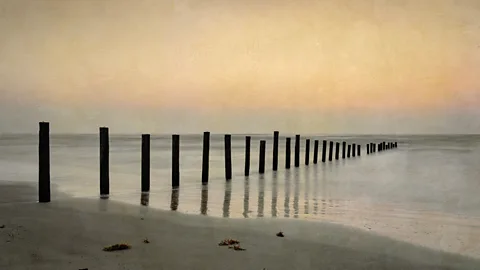 Getty Images
Getty ImagesAccording to Davis, the Gulf's first residents arrived 8,000 to 10,000 years ago. Early European visitors were astonished when they encountered the Calusa people who thrived along what is now south-west Florida. The tribe harvested the Gulf's abundant seafood, and piled up mounds of oyster shells that stretched for miles. Tribe members were so well-nourished they towered over the Europeans.
The next several hundred years saw Spain, France and England competing for influence, said Deanne Stephens,a history professor at the University of Southern Mississippi and executive director of the Gulf South Historical Association. "It was quite an amalgamation of players in the region."
Since the 19th Century, the Gulf has attracted immigrants from around the world, ranging from fruit-selling Sicilians in New Orleans to Greek sponge divers in Florida. Along Stephens' Mississippi coast, the seafood industry has attracted workers from places as varied as Poland, Croatia, Vietnam and now Latin America. "Regardless of who was here, it was always recognised by people as a place of opportunity," she said.
Likewise, Poth says her museum consistently surprises visitors. "They had no idea how important the Gulf of Mexico is to the world."
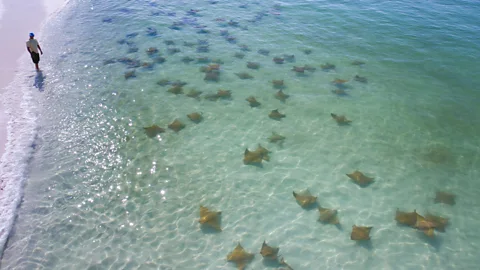 Alamy
AlamyShe's excited about plans for a new exhibit devoted to another Gulf global influencer: the late singer and Mobile city native Jimmy Buffett, whose hits like Margaritaville introduced many around the world to the coast's laid-back lifestyle. Yet, she admits that the project may bring up a host of issues. "What are we going to call it? Every one of his songs is about the Gulf of Mexico."
Sledge, meanwhile, says if Trump wants to change the Gulf's name, a better choice might be to call it the Gulf of the Americas, which would acknowledge its geographic breadth and its enormous challenges. Scientists say the zone faces many threats in the coming century from pollution, coastal erosion and climate change.
"It's a shared resource," he said. "We all depend on it, and it's in our interest to take care of it – whatever we call it."
--
If you liked this story, sign up for The Essential List newsletter – a handpicked selection of features, videos and can't-miss news, delivered to your inbox twice a week.
